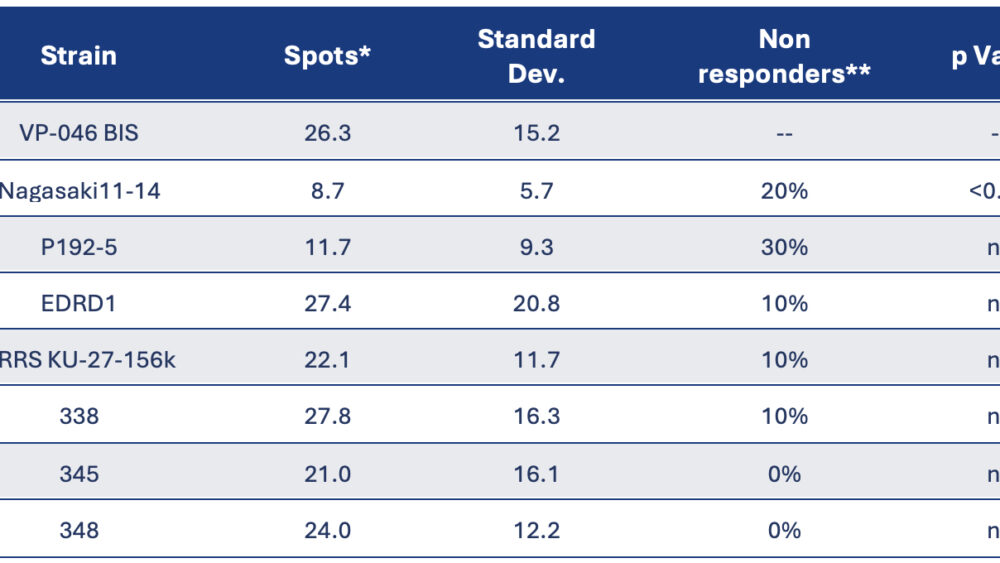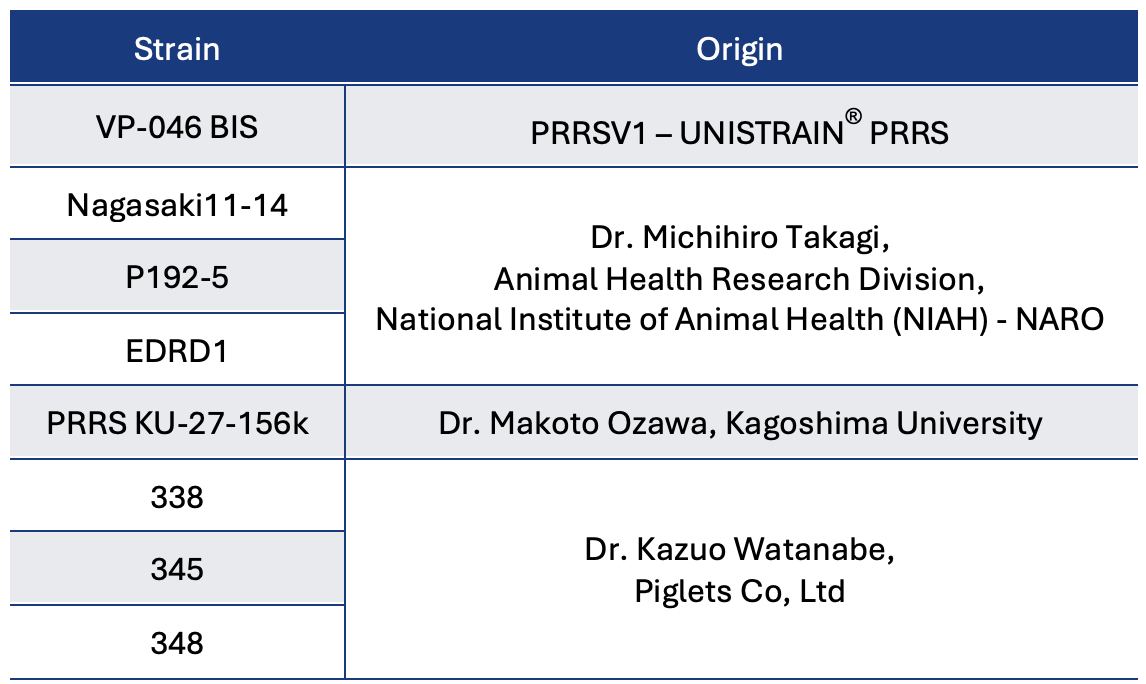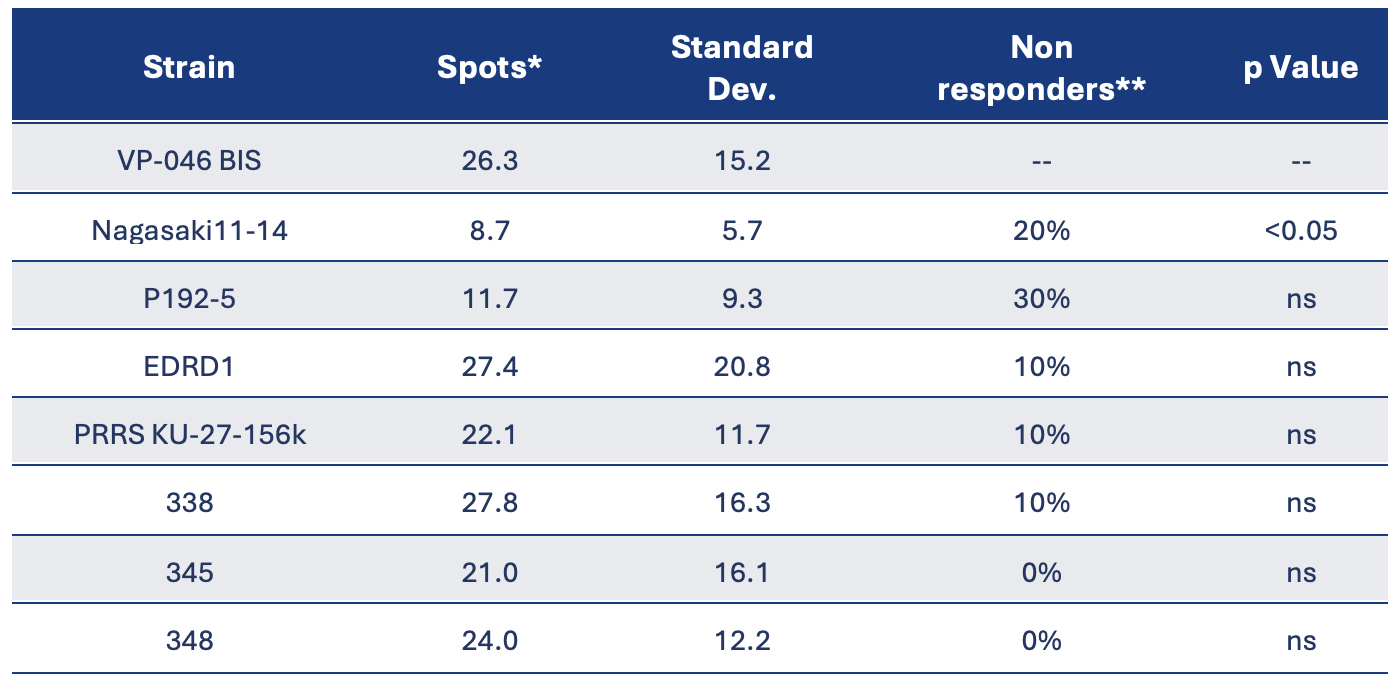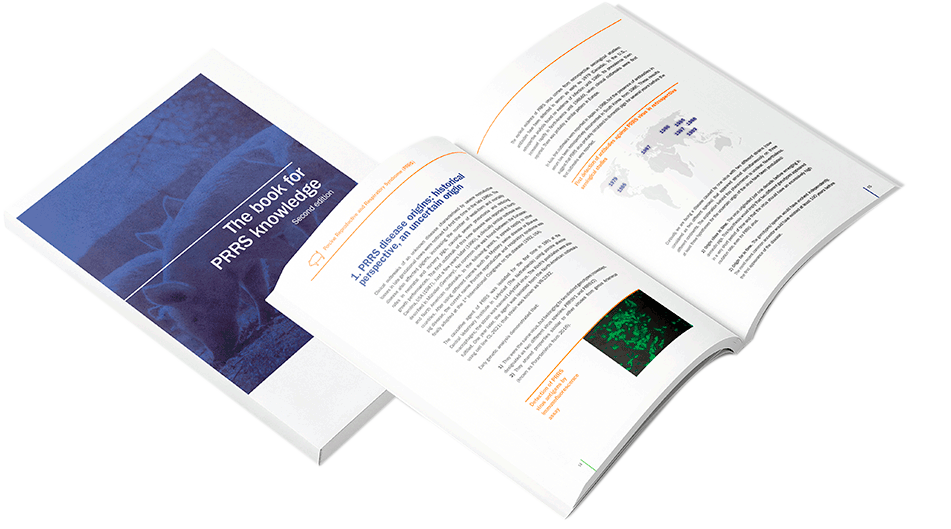Pigs vaccinated with a PRRSV1 MLV developed potent immunity against Japanese PRRSV2 strains
Adapted from the publication of Salvador Romero et al. in the IPVS 2024.
Introduction
Modified live vaccines (MLV) remain a key tool for the protection of pigs against PRRS, one of the costliest diseases in swine farms. The cell-mediated immunity (CMI) plays a central role after MLV vaccination, as is responsible for limiting the duration of viraemia, and consequently the spread of the virus1,2. On the other hand, the humoral immunity provided by neutralizing antibodies (NA), even if important, is developed slowly and do not reach high titres3,4.
Taking this into consideration, the evaluation of CMI and NA provided by MLV PRRS vaccines is important to assess protection against field strains.
Recently, Salvador Romero and colleagues5, assessed the NA and CMI conferred UNISTRAIN® PRRS (PRRSV1 MLV, HIPRA) against the infection by PRRSV2 Japanese strains.
Material and methods
Ten naïve pigs were vaccinated with UNISTRAIN® PRRS at 2 weeks of age, and peripheral blood mononuclear cells (PBMC) and serum were collected at 4 weeks after vaccination.
CMI and NA were evaluated against seven Japanese PRRSV2 strains (Nagasaki11-14, P192-5, EDRD1, KU-27-156K, 338, 345, 348) (table 1):
-
- CMI was evaluated by IFN-γ-SC using ELISPOT assay6.
- Humoral immunity was measured by virus neutralization assay.
The strain VP-046 (vaccine homologous virus) was included in the panel of strains tested and its stimulation acts as the comparative response to the Japanese strains by means of Kruskal-Wallis test (Non-parametric).
Results
The vaccinated animals developed IFN-γ-SC response against all the Japanese PRRSV2 strains analysed (Table 2). This response was comparable to the response against vaccine virus (except for Nagasaki11-14) demonstrating an equal cellular activation. Moreover, between 70-100% of the vaccinated animals did respond when stimulated with each virus strain.
After vaccination, the pigs produced NA against 3 Japanese strains (Nagasaki11-14, EDRD1 and 345). However, although CMI provided by these strains was remarkable, results of NA of strains P192-5, PRRSKU-27-156K, 338 and 348 were not conclusive (Table 3).
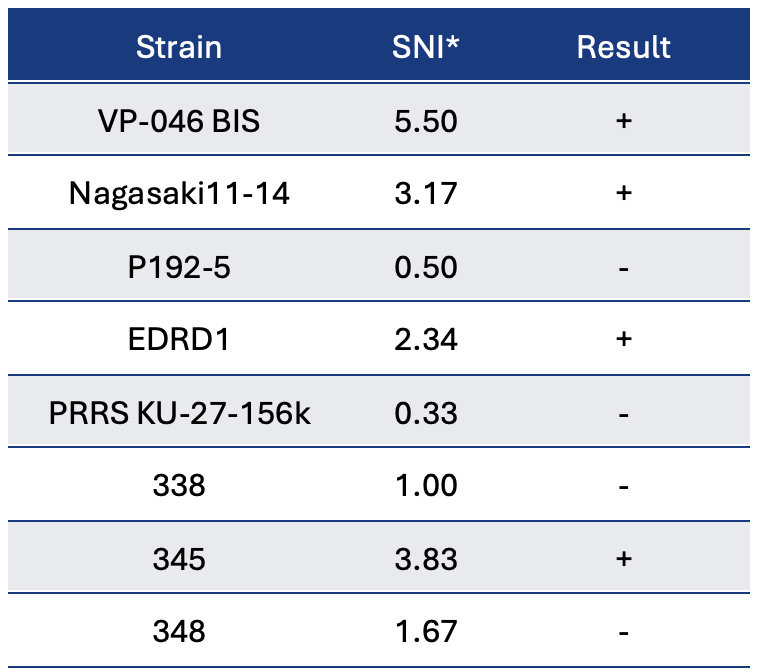
Table 3 – Serum Neutralization Index (SNI) obtained for each strain tested.
*SNI=titre virus without serum/titre virus incubated with antiserum. Log SNI equal or higher than 2 will confirm the reaction with the virus tested.
Discussion and conclusion
For PRRS, the NA production after a single dose of any MLV is limited, is developed slowly and does not reach high titres. Thus, the CMI generated by a PRRS vaccine plays an important role in protection against the challenge. The results obtained confirmed that UNISTRAIN® PRRS could confer NA against 40% of the strains tested. Regarding CMI, this vaccine induced a strong cell-mediated immunity against almost all the strains tested. Consequently, UNISTRAIN® PRRS can be a good choice to control PRRSV2 Japanese strains.
If you want to read more publications about PRRS: PRRS Control Publications
References

